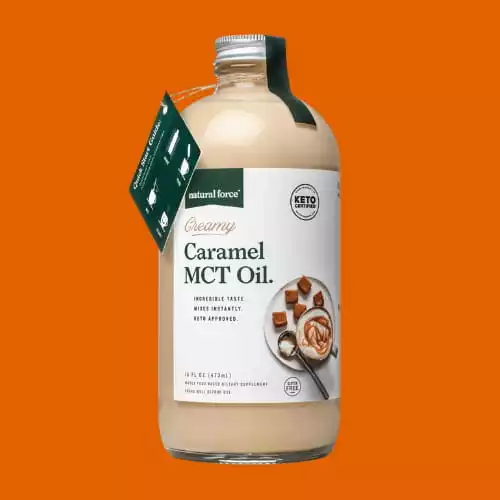Drinking coffee is a staple for many people, but adding sugar can cancel out its health benefits. Fortunately, there are many healthy ways to sweeten coffee without sugar. Some alternatives include cinnamon, unsweetened cocoa powder, and vanilla extract. These natural sweeteners can add flavor and health benefits to your morning cup of joe.

Here are a few key takeaways:
- Sugar alternatives often have health benefits
- Less sugar in your coffee can support a healthier lifestyle
- Natural sweeteners can boost your coffee’s flavor profile
When I’m drinking my organic mold free coffee, I want to enjoy the warmth, the rich aroma, and the deep, soothing flavor it brings. Just as with any other food or drink, I believe that making healthy choices shouldn’t come at the expense of taste.
I’ve found that trying out various natural sweeteners can make your coffee-drinking experience even more enjoyable, providing you with an array of flavors you might not have otherwise discovered. Each offers its unique flavor and potential health benefits.
This article will break down these options for you and present some more alternatives along the way.
I am thankful that there are several healthy alternatives to sugar that can add that much-desired sweetness to coffee, without the detrimental effects of sugar like spiking your glucose or insulin levels.
With no shortage of sugar alternatives to choose from, it’s worth experimenting with different options for a while before settling on the right new taste for you.
What Factors to Consider When Looking for Healthy Ways to Sweeten Coffee
You should consider the following factors when deciding on which healthy alternative to use:
- Glycemic Index (GI): Choose sweeteners with a low glycemic index to avoid rapid spikes in blood sugar levels and insulin levels.
- Caloric Content: Opt for sweeteners with lower calories to help manage weight and caloric intake.
- Natural vs. Artificial Sweeteners: Natural sweeteners are generally considered healthier than artificial sweeteners.
- Health Benefits: Some natural sweeteners provide additional health benefits, such as improved insulin sensitivity, antioxidants, vitamins, and minerals.
- Taste: Consider the taste of the sweetener, as some may have a more bitter or distinct flavor that may not be suitable for everyone.
- Powder vs Syrup: Do you want a powder that needs mixing and might leave some grit or prefer blending in a sugar-free syrup.
Related: Use Our Free Online Net Carb Calculator or Online Blood Sugar Units Convertor
What is the Best Way to Sweeten Coffee Without Sugar
In my opinion, the best way to sweeten coffee is to use a little bit of ceylon cinnamon powder or to use the Natural Force Creamy MCT Oil. I like the taste of cinnamon at times and other times to have a more sweet keto raising option of creamy MCT oil.
Get a zero sugar caramel or vanilla taste in your coffee whilst also getting the benefits of MCT oil.
Healthy Ways To Sweeten Coffee Without Sugar (Top Options)
What are some healthy ways to sweeten coffee without sugar?
Stevia, erythritol, monk fruit sweetener, xylitol, cinnamon, unsweetened cacao powder, vanilla extract and dates are all excellent alternatives to sugar.
1. Cinnamon
Cinnamon not only can make coffee taste nice, but also may help lower blood sugar levels and improve insulin sensitivity. But not too much.
You should use cinnamon in moderation, as excessive consumption can lead to an increased intake of a compound called coumarin, which has been linked to several health issues like liver damage.
“a single teaspoon per day could put many average sized adults at risk of liver damage. This is especially true for individuals who already have pre-existing liver disease.” – according to Gastrointestinal Society.
Actionable Tip: Try use Ceylon cinnamon versus Cassia cinnamon which has lower amounts of coumarin.
2. Flavored MCT Oil
I like the taste of using Natural Force Creamy MCT oils when I want a healthy alternative to using very sweet coffee syrups.
You get the benefits of using C8 MCT oil for supporting ketone levels for energy levels whilst getting a taste of roasted caramel or their Vanilla option.
Like all other MCT oils don’t use too much in a day, otherwise you will experience some gastrointestinal issues like an upset stomach or loose bowels. Also, it has more calories than other sweeteners listed.
3. Unsweetened Cacao Powder
Unsweetened cacao powder is an alternative for someone looking for a more chocolate/mocha tasting coffee experience. But be aware it does have a more bitter taste compared to sweetened cocoa powder.
The glycemic index of unsweetened cocoa powder is 20.
One studies research support that cocoa flavonoids have an anti-diabetic effect. Cocoa flavanols that are found in cocoa powder can:
- slow down carbohydrate digestion in the gut
- improve insulin secretion
- reduce inflammation
- help stimulate the movement of sugar out of our blood and into muscles
But, you will want to use cacao powder that doesn’t contain sugar to get more cocoa flavanols.
Actionable Tip: Try use unsweetened cacao powder versus unsweetened cocoa powder as it has more coffee flavonoids.
4. Stevia
Extracted from the leaves of the stevia rebaudiana plant, stevia is a zero-calorie sweetener that’s 200 times sweeter than sugar.
Unlike artificial sweeteners, stevia is completely natural and doesn’t have any known adverse health effects.
5. Erythritol
Erythritol is a sugar alcohol that’s another excellent alternative to regular sugar.
While it has about 70% of the sweetness of sugar, it comes with almost no calories or effects on blood sugar.
It also doesn’t cause digestive problems like other sugar alcohols can.
6. Monk Fruit Sweetener
Monk fruit sweeteners are made from the extract of dried monk fruits, and are 100-250 times sweeter than sugar.
They contain zero calories and have no effect on blood sugar.
7. Xylitol
Another natural sugar alcohol, xylitol is as sweet as sugar but contains 40% fewer calories.
You should keep it away from pets, though, as it’s toxic to dogs.
8. Vanilla Extract Powder
If you like the taste of Vanilla then you have to try using a little vanilla extract powder in your coffee to give it a new flavor.
The glycemic index of vanilla extract is 5.
Vanillin and vanillin acid represent biologically active ingredients in vanilla that has been known for long for its health-beneficial including antimicrobial effects besides its role as flavoring agent.
Maisch et al. 2022
Using vanilla extract powder in coffee can be a healthy alternative to sugar, providing various health benefits when consumed in moderation
Actionable Tip: Try look for organic fairtrade Madagascar Bourbon pure vanilla extract powder and not vanilla essence.
9. Dates
Blending dates into a paste can create a natural, nutritious sweetener rich in fiber.
However, it’s important to keep in mind that dates do have sugars, but they are natural and essentially come packaged with nutrients and fiber.
Actionable Tip: Experiment with a different sweetener each week until you find your favorite.
Comparison of Healthy Alternatives to Sugar in Coffee
| Ingredient | Glycemic Index | Calories per teaspoon | Taste Profile | Sweetness Factor compared to Sucrose |
|---|---|---|---|---|
| Stevia | 0 | 0 | Very sweet, slight bitterness | Up to 300 times sweeter |
| Monk Fruit Sweetener | 0 | 0 | Very sweet | 100-250 times sweeter |
| Erythritol | 1 | 0 | Sweet, slight bitterness and astringency | 0.6-0.8 times sweeter |
| MCT Oil | 0 | 45 | Neutral, oily | Not sweet |
| Xylitol | 7 | 10 | Sweet, cooling sensation | Equivalent sweetness to sucrose[6] |
| Vanilla Extract Powder | 5 | Calories not available | Subtle, sweet, and aromatic | Not available |
| Cinnamon | 5 | 6 | Warm, sweet, and spicy | Not available |
| Unsweetened Cacao Powder | 20 | Calories not available | Bitter, chocolatey | Not available |
| Dates | 42-62 | Calories not available | Sweet, caramel-like | Not available |
Healthy Ways To Sweeten Iced Coffee
When I’m preparing iced coffee, I’ve learned that pre-dissolving the sweetener ensures an even distribution of sweetness, enhancing the overall taste.
Most of the above sweeteners can also be used in iced coffee.
However, some may not dissolve as well in cold liquids, so making a simple syrup with the sweetener and hot water beforehand can work wonders.
Coconut water can also be a refreshing and natural sweetener.
Actionable Tip: Keep a jar of simple syrup made from your favorite healthy sweetener in your refrigerator for easy access.
Is Honey In Coffee Better Than Sugar?
From experience, honey imparts a unique, satisfying sweetness to coffee, but remember to use it in moderation.
Honey is a natural sweetener that contains small amounts of vitamins and minerals.
It also has a lower glycemic index (GI) than sugar. This means honey doesn’t spike your blood sugar levels as drastically.
However, honey still contains sugars and should be used sparingly.
Actionable Tip: Try local, raw, organic honey for its richer flavor and potential health benefits.
How Do You Make Coffee Taste Good & Healthy?
I’ve found that adding these natural enhancers can drastically alter and improve the overall flavor of your coffee.
Apart from using healthier sweeteners, consider other natural flavors like cinnamon, nutmeg, or cocoa powder.
Switching to a darker roast or using a French press can also enhance the flavor of cofffee. I personally like drinking coffee beans that are medium roast with a chocolate, caramel, nut tasting profile. Then using an espresso method or Aeropress method for extraction.
Actionable Tip: Experiment with adding different spices to your coffee, such as cardamom or cinnamon. This can help to give it a new depth of flavor that you haven’t experienced before.
What Do Vegans Use To Sweeten Coffee?
In my research I found that many vegan products prefer the flavors of natural sweeteners like dates or agave nectar.
Agave nectar is a vegan-friendly product derived from the sap of agave plants. Like honey, agave nectar is high in fructose and should be used sparingly.
Actionable Tip: For a creamy, slightly sweet addition to your coffee, try adding a splash of unsweetened, plant-based milk. It’s worth a shot!
Healthy Ways To Sweeten Tea & Coffee (My Final Thoughts)
I’ve found that exploring various healthy sweeteners can transform the everyday ritual of drinking coffee or tea into a delightful flavor adventure, at least for a while.
You might as well see it as an opportunity to explore new flavors of your favorite beverage.
Different sweeteners are going to have varying levels of impact on the overall taste.
The goal is not to find a one-size-fits-all sweetener, but to find what works best for your palate and dietary needs.
Using natural sweeteners not only helps reduce sugar intake but can also introduce you to new flavors.
Disclaimer:
Every effort has been made to provide useful and accurate information. Regardless, this information should not be relied upon in place of consultation with healthcare professionals and should not be confused with advice from professionals, such as dieticians and doctors.
You May Also Like:
- Can Coffee Cause Bloating?
- Will Decaf Coffee Keep You Awake?
- Can You Drink Coffee on the Carnivore Diet?
- Is Sugar Gluten- Free?
